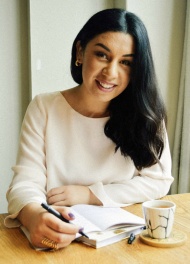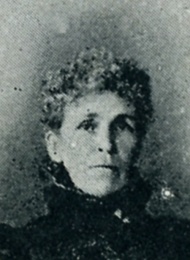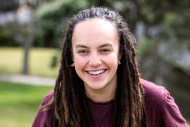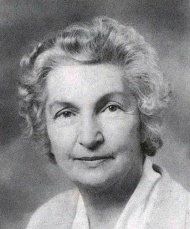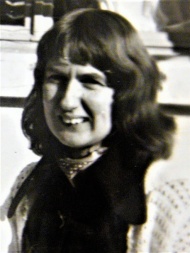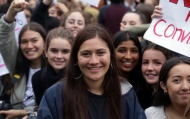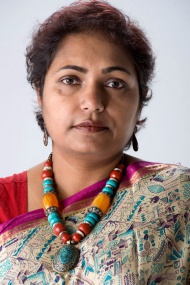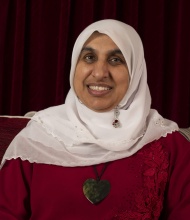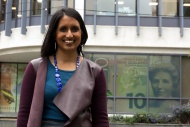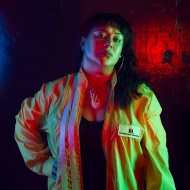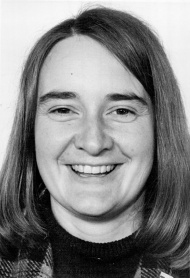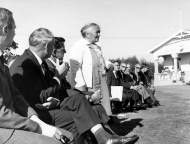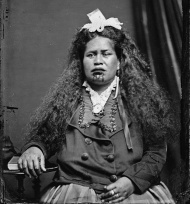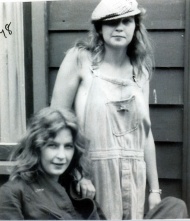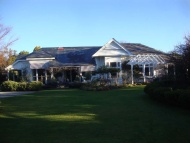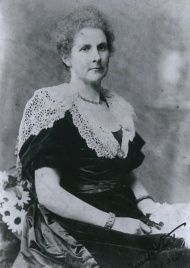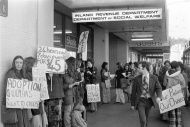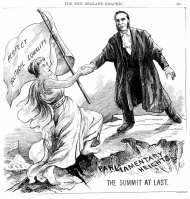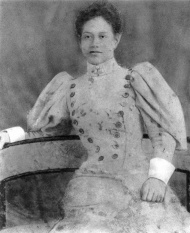Events In History
-
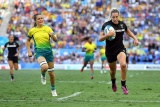 15 April 2018Black Ferns Sevens win Commonwealth gold
15 April 2018Black Ferns Sevens win Commonwealth goldNew Zealand rugby sevens team turned the tables on 2016 Olympic champions Australia, winning a thrilling final at Robina Stadium on the Gold Coast in extra time. Read more...
-
 14 April 2018Black Sticks Women win Commonwealth gold
14 April 2018Black Sticks Women win Commonwealth goldIn the 2010s New Zealand’s women’s hockey team was consistently among the best in the world, but until 2018 it had not won a major tournament Read more...
-
 3 December 2013Alexia Pickering inducted into the Attitude Awards Hall of Fame
3 December 2013Alexia Pickering inducted into the Attitude Awards Hall of FameAlexia Pickering’s induction into the Attitude Awards Hall of Fame recognised her lifelong dedication to championing accessibility for all New Zealanders. Read more...
-
 27 September 2013Lorde releases Pure heroine in New Zealand and Australia
27 September 2013Lorde releases Pure heroine in New Zealand and AustraliaFollowing the success of her single ‘Royals’, Lorde’s first studio album Pure heroine debuted at number three on the US Billboard 200 charts Read more...
-
 6 August 2012Valerie Adams wins second Olympic gold
6 August 2012Valerie Adams wins second Olympic goldValerie Adams won gold in the shot put at the London Olympic Games. It was awarded a week after the competition, when the intial winner was disqualified for testing positive for an anabolic steroid. Read more...
-
 14 October 2010Silver Ferns beat Diamonds in Commonwealth Games thriller
14 October 2010Silver Ferns beat Diamonds in Commonwealth Games thrillerJust how close the New Zealand and Australian netball teams were became clear as the match, the longest official game of netball ever played, stretched over 84 pulsating minutes. Read more...
-
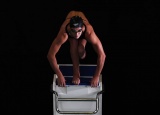 8 September 2008Sophie Pascoe wins her first medal
8 September 2008Sophie Pascoe wins her first medalAt the 2008 Beijing Paralympics, 15-year-old Sophie Pascoe won her first medal, a silver in the women's 100m butterfly S10. She went on to win gold medals in 100m backstroke S10, 100m breaststroke SB9 and 200m individual medley SM10. Read more...
-
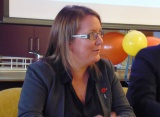 29 July 2003Moana Mackey joins mother Janet in Parliament
29 July 2003Moana Mackey joins mother Janet in ParliamentTwenty-nine-year-old Moana Mackey entered the House of Representatives as a Labour Party list MP. She joined her mother, Janet Mackey, who had been a Labour MP since 1993. They were the first mother and daughter to serve together in New Zealand’s Parliament. Read more...
-
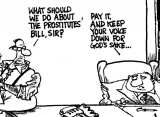 25 June 2003Parliament votes for prostitution reform
25 June 2003Parliament votes for prostitution reformThe Prostitution Reform Act was passed on a tumultuous night in Parliament, with the public galleries filled with supporters from both sides. Read more...
-
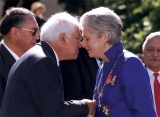 4 April 2001Silvia Cartwright becomes governor-general
4 April 2001Silvia Cartwright becomes governor-generalThe swearing-in of Dame Silvia Cartwright as New Zealand’s 18th governor-general completed a female clean sweep of the country’s most powerful political and legal positions. Read more...
-
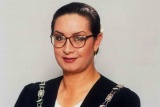 10 December 1999Georgina Beyer becomes first transgender woman elected to Parliament
10 December 1999Georgina Beyer becomes first transgender woman elected to ParliamentGeorgina Beyer won the Wairarapa electorate for Labour in 1999 by a margin of 3033 votes. Read more...
-
 8 August 1995Shakti begins in New Zealand
8 August 1995Shakti begins in New ZealandOn 8 August 1995 Farida Sultana and seven other women met to discuss the establishment of a culturally specialist support service for Asian, Middle Eastern and African women in New Zealand. Read more...
-
 1 August 1992Lorraine Moller wins Olympic bronze
1 August 1992Lorraine Moller wins Olympic bronzeAt the age of 37, Lorraine Moller ran the race of her life to place third in the marathon at the Barcelona Olympics. Read more...
-
 5 September 1990An Angel at My Table screens at Venice Film Festival
5 September 1990An Angel at My Table screens at Venice Film FestivalBased on the autobiographies of Janet Frame, An angel at my table was screened in 35 countries and won multiple awards, including a Grand Special Jury prize in Venice. Read more...
-
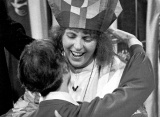 29 June 1990First female Anglican diocesan bishop appointed
29 June 1990First female Anglican diocesan bishop appointedDr Penny Jamieson’s rise through church ranks was rapid. The first women were ordained to the Anglican priesthood in New Zealand in 1977. Jamieson was ordained and appointed to a Wellington parish in 1985. Read more...
-
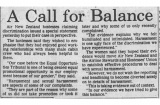 18 December 1988Air New Zealand women cabin crew win anti-discrimination case
18 December 1988Air New Zealand women cabin crew win anti-discrimination caseAir New Zealand was found to be in breach of the Human Rights Act after more than a decade of female cabin crew campaigning for the same opportunities as male workers at the airline. Read more...
-
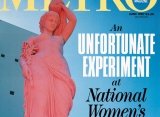 5 August 1988Cartwright Report condemns cancer treatment
5 August 1988Cartwright Report condemns cancer treatmentThe report was triggered by the publication in Metro magazine of ‘An Unfortunate Experiment’, an article by Sandra Coney and Phillida Bunkle which alleged that cervical cancer patients at Auckland’s National Women’s Hospital were receiving inadequate treatment. Read more...
-
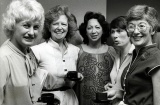 26 July 1984Ann Hercus becomes first Minister of Women's Affairs
26 July 1984Ann Hercus becomes first Minister of Women's AffairsAnn Hercus became New Zealand’s first Minister of Women’s Affairs following the election of the fourth Labour government. Read more...
-
 10 April 1984Susan Devoy wins British Open squash tournament
10 April 1984Susan Devoy wins British Open squash tournamentIn 1984, Susan Devoy became the first New Zealander to win the women’s title at the prestigious British Open squash tournament, the ‘Wimbledon of Squash’. Read more...
-
 11 July 1983Lorraine Downes crowned Miss Universe
11 July 1983Lorraine Downes crowned Miss UniverseLorraine Downes became a household name overnight and spent the next 12 months travelling the world accompanied by a chaperone, carrying out the duties of Miss Universe Read more...
-
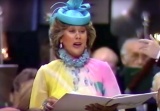 29 July 1981Kiri Te Kanawa sings at Royal Wedding
29 July 1981Kiri Te Kanawa sings at Royal WeddingFor six minutes New Zealand opera star Kiri Te Kanawa took centre stage at the highly anticipated wedding of Prince Charles to Lady Diana Spencer at St Paul’s Cathedral, London Read more...
-
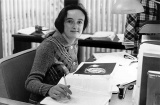 1 July 1978Beatrice Tinsley made professor of astronomy at Yale
1 July 1978Beatrice Tinsley made professor of astronomy at YaleTinsley became the first woman to be appointed as Professor of Astronomy at Yale University in the United States Read more...
-
 16 December 1977Contraception, Sterilisation, and Abortion Act passed
16 December 1977Contraception, Sterilisation, and Abortion Act passedThe Act specified the circumstances in which contraceptives could be supplied to young people, sterilisations could be undertaken, and abortions could be authorised. Read more...
-
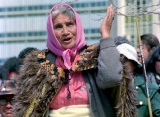 13 October 1975Whina Cooper leads land march to Parliament
13 October 1975Whina Cooper leads land march to ParliamentAbout 5000 marchers arrived at Parliament and presented a petition signed by 60,000 people to Prime Minister Bill Rowling. The primary aim of the hīkoi (march) was to protest against the continuing loss of Māori land. Read more...
-
 14 November 1973DPB legislation enacted
14 November 1973DPB legislation enactedThe passage of the Social Security Amendment Act introduced the domestic purposes benefit (DPB) to New Zealand’s social welfare system. Read more...
-
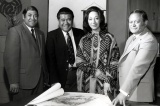 8 December 1972Whetu Tirikātene-Sullivan becomes first Māori woman Cabinet minister
8 December 1972Whetu Tirikātene-Sullivan becomes first Māori woman Cabinet ministerWhetu Tirikātene-Sullivan became the first female Māori Cabinet minister when she was sworn in as Minister of Tourism in Norman Kirk’s third Labour government Read more...
-
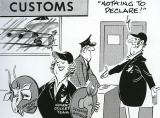 8 February 1972Women cricketers triumph
8 February 1972Women cricketers triumphNew Zealand’s women cricketers achieved their first test victory at the 17th attempt. They had lost seven and drawn nine of their previous tests, all against either England or Australia. Read more...
-
 28 November 1953New Zealand's first family planning clinic opens
28 November 1953New Zealand's first family planning clinic opensNew Zealand’s first family planning clinic opened above a garage in Remuera, Auckland. Read more...
-
 25 September 1951Māori Women's Welfare League established
25 September 1951Māori Women's Welfare League establishedEighty-seven delegates attended the first day of the inaugural conference of the Māori Women’s Welfare League in Wellington. Dame Whina Cooper was appointed as president. Read more...
-
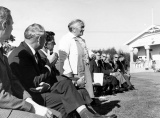 29 November 1949First female Māori MP elected
29 November 1949First female Māori MP electedIriaka Rātana was elected as New Zealand’s first female Māori MP. Read more...
-
 29 May 1947Mabel Howard becomes first female Cabinet minister
29 May 1947Mabel Howard becomes first female Cabinet ministerWhen mabel Howard was appointed minister of health and minister in charge of child welfare, she became the first woman to serve as a Cabinet minister in New Zealand. Read more...
-
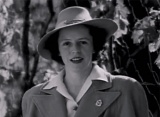 26 October 1942Women Jurors Act allows women to sit on juries
26 October 1942Women Jurors Act allows women to sit on juriesThe Women Jurors Act provided for women aged between 25 and 60 to have their names placed on the jury list on the same basis as men – if they so desired. Read more...
-
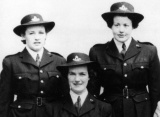 3 June 1941First women enter police training
3 June 1941First women enter police trainingCalls for policewomen had been made since the 1930s, when the National Council of Women started lobbying for women officers. Read more...
-
 16 January 1941Women's Auxiliary Air Force founded
16 January 1941Women's Auxiliary Air Force foundedThe Women’s Auxiliary Air Force (WAAF) was formed to enable the Royal New Zealand Air Force to release more men for service overseas during the Second World War. Read more...
-
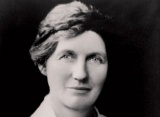 13 September 1933New Zealand's first woman MP elected
13 September 1933New Zealand's first woman MP electedThe Labour Party’s Elizabeth McCombs became New Zealand’s first female Member of Parliament, winning a by-election in the Lyttelton seat caused by the death of her husband, James McCombs. Read more...
-
 8 December 1932First issue of New Zealand Woman's Weekly
8 December 1932First issue of New Zealand Woman's WeeklyThe first issue of the New Zealand Woman’s Weekly was distributed during the Depression. The magazine contained advice on cooking and housework, romantic short stories, knitting patterns and feature articles. Read more...
-
 4 April 1921First school dental nurses begin training
4 April 1921First school dental nurses begin trainingIn a world first, 30 women began training as dental nurses for the state-funded School Dental Service. Read more...
-
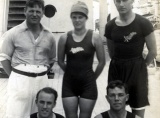 23 August 1920New Zealand's first female Olympian
23 August 1920New Zealand's first female OlympianViolet Waldron was New Zealand’s first female Olympian, and part of New Zealand’s first Olympic team of four. She competed in freestyle swimming in the 1920 Antwerp Summer Olympics. Read more...
-
 29 October 1919Women can stand for Parliament
29 October 1919Women can stand for ParliamentThe passing of the Women’s Parliamentary Rights Act enabled women to stand for election to the House of Representatives, 26 years after they won the right to vote. Read more...
-
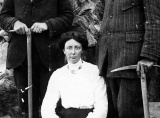 3 December 1910First female ascent of Aoraki/Mt Cook
3 December 1910First female ascent of Aoraki/Mt CookFreda du Faur was the first female to complete the ascent of Aoraki/Mt Cook. Read more...
-
 22 September 1906Domestic workers call for 68-hour week
22 September 1906Domestic workers call for 68-hour weekAt a meeting in Wellington, Marianne Tasker and supporters established a domestic workers’ union, hoping to use the Liberal government’s Industrial Conciliation and Arbitration Act to force employers to improve pay and conditions. Central to their demands was a 68-hour working week. Read more...
-
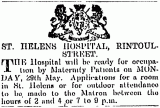 29 May 1905World’s first state-run maternity hospital opens
29 May 1905World’s first state-run maternity hospital opensAs well as providing care for expectant mothers, the new St Helens hospital in Wellington trained midwifery students. Read more...
-
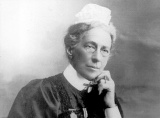 10 January 1902World's first state-registered nurses
10 January 1902World's first state-registered nursesEllen Dougherty was one of the world’s first state-registered nurses. Grace Neill, Assistant Inspector in the Department of Asylums and Hospitals, advocated state registration of trained nurses, which was introduced by the Nurses’ Registration Act 1901. Read more...
-
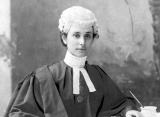 10 May 1897NZ's first woman barrister and solicitor appointed
10 May 1897NZ's first woman barrister and solicitor appointedFollowing the passage of the Female Law Practitioners Act 1896, Ethel Benjamin became the first woman to be admitted as a barrister and solicitor of the Supreme Court of New Zealand. Read more...
-
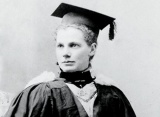 3 May 1897New Zealand's first woman doctor registered
3 May 1897New Zealand's first woman doctor registeredMargaret Cruickshank, the first female doctor registered in New Zealand, practised in Waimate, South Canterbury, until her death from influenza in 1918. Read more...
-
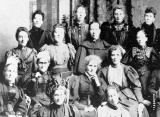 13 April 1896National Council of Women formed
13 April 1896National Council of Women formedThree years after New Zealand became the first self-governing country in which all women could vote, representatives of 11 women’s groups met in Christchurch’s Provincial Council Buildings to form the National Council of Women. Read more...
-
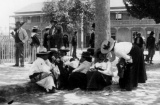 20 December 1893Women vote in Māori seats for first time
20 December 1893Women vote in Māori seats for first timeJust over three weeks after New Zealand women became the first in the world to vote in a national parliamentary election, voting was held in the four Māori electorates. Read more...
-
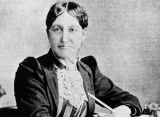 29 November 1893First woman mayor in British Empire elected
29 November 1893First woman mayor in British Empire electedBy becoming mayor of Onehunga, Auckland, Elizabeth Yates struck another blow for women’s rights in local-body polls held the day after the first general election in which women could vote. Read more...
-
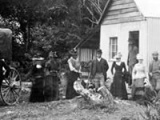 28 November 1893Women vote in first general election
28 November 1893Women vote in first general electionNew Zealand women went to the polls for the first time, just 10 weeks after the governor signed the Electoral Act 1893, making this country the first in in which women had the right to vote in parliamentary elections. Read more...
-
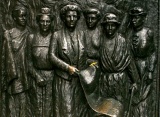 19 September 1893Women win the right to vote
19 September 1893Women win the right to voteWhen the governor, Lord Glasgow, signed a new Electoral Act into law, New Zealand became the first self-governing country in the world in which women had the right to vote in parliamentary elections. Read more...
-
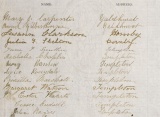 28 July 1893Massive women’s suffrage petition presented to Parliament
28 July 1893Massive women’s suffrage petition presented to ParliamentThe monster suffrage petition contained the signatures of more than 25,000 women. A dozen other, smaller petitions were also submitted around the same time. Read more...
-
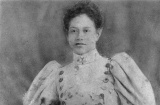 18 May 1893Meri Te Tai Mangakāhia addresses Kotahitanga Māori parliament
18 May 1893Meri Te Tai Mangakāhia addresses Kotahitanga Māori parliamentMeri Te Tai Mangakāhia, a prominent advocate for Māori women, addressed the Kotahitanga Māori parliament - the first woman known to have done so. Read more...
-
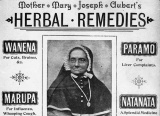 14 October 1892Suzanne Aubert appointed Mother Superior
14 October 1892Suzanne Aubert appointed Mother SuperiorMother Aubert, known initially in her religious life as Sister Mary Joseph, was appointed to a newly established order at Hiruharama (Jerusalem) on the Whanganui River Read more...
-
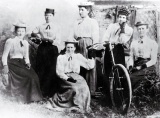 18 August 1892First women's cycling club in Australasia formed
18 August 1892First women's cycling club in Australasia formedSoon after the development of the modern bicycle, Australasia's first women's cycling club was formed in Christchurch. Read more...
-
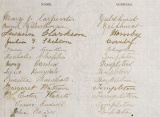 14 August 1891Women's suffrage petitions presented to Parliament
14 August 1891Women's suffrage petitions presented to ParliamentThese petitions, signed by 9000 women, contributed to the introduction of a Female Suffrage Bill in Parliament. This received majority support in the House of Representatives but was defeated in the Legislative Council. Read more...
-
 12 July 1889First women's trade union formed
12 July 1889First women's trade union formedThe first women’s trade union in New Zealand emerged in the late 19th century in response to poor working conditions in the clothing industry. Read more...
-
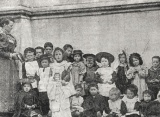 10 June 1889First kindergartens
10 June 1889First kindergartensThe first New Zealand kindergarten to educate children, in Dunedin, was based on the ideas of the German educationalist Friedrich Froebel. Read more...
-
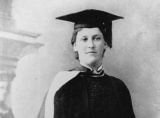 15 August 1881First woman Master of Arts in British Empire graduates
15 August 1881First woman Master of Arts in British Empire graduatesHelen Connon was the first woman in the British Empire to gain her Master of Arts degree. Her academic career started with edcuation in Dunedin, New Zealand. Read more...
-
 28 June 1881First registered female pharmacist
28 June 1881First registered female pharmacistElizabeth Robinson of Christchurch was the first woman to register as a pharmacist under a registration system established by the Pharmacy Act 1880. Read more...
-
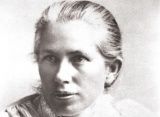 11 July 1877First woman graduates from a New Zealand university
11 July 1877First woman graduates from a New Zealand universityKate Edger became the first woman in New Zealand to gain a university degree and the first woman in the British Empire to earn a Bachelor of Arts (BA). Read more...
-
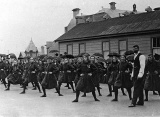 6 February 1871First public girls' secondary school
6 February 1871First public girls' secondary schoolThe first public girls’ secondary school in the southern hemisphere was Otago Girls’ High School, which opened eight years after the local public boys’ high school. Read more...
Articles
Women and the vote
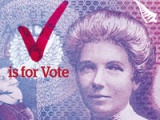
On 19 September 1893 the governor, Lord Glasgow, signed a new Electoral Act into law. As a result of this landmark legislation, New Zealand became the first self-governing country in the world in which all women had the right to vote in parliamentary elections.
-
Page 2 – Brief history
A history of the movement that won New Zealand women the vote in 1893
-
Page 3 – Women's suffrage milestones
Women's suffrage milestones from 1869 to 1999
-
Page 4 – The National Council of Women
Three years after the vote was won in 1893, a convention of representatives of 11 women's groups from throughout New Zealand resolved itself into the National Council of Women
-
Page 5 – World suffrage timeline
Although a number of other territories enfranchised women before 1893, New Zealand can justly claim to be the first self-governing country to grant the vote to all adult women
-
Page 6 – Women's suffrage petition
Search the women's suffrage petition.
Temperance movement
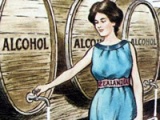
Temperance was one of the most divisive social issues in late-19th and early-20th century New Zealand. Social reformers who argued that alcohol fuelled poverty, ill health, crime and immorality nearly achieved national prohibition in a series of hotly contested referendums.
-
Page 2 – Beginnings
Dawn of the New Zealand temperance movement, 1881-1893.
-
Page 4 – Voting for prohibition
The First World War period brought total or partial prohibition to several countries: New Zealand came within a whisker of joining them.
Suffrage 125

-
Page 1 – Suffrage 125

2018 marked 125 years of women’s suffrage in New Zealand. As we remember the suffragists and their achievements, how can we also explore women’s rights and feminist issues in
-
Page 2 – Stories of women's activism
A selection of women’s stories that reflect key issues and activities prominent during three heightened waves of feminist activism: suffrage campaign, womens liberation
-
Page 2 – # Kate Sheppard sent me
A poignant placard used in a 2017 Women’s March – ‘Kate Sheppard sent me’ – highlighted the connection between the fight for women’s suffrage in the 1890s and the ongoing women
-
Page 3 – Are we there yet? Women in Parliament
'Prime Minister AND a mum'On 19 January 2018, Prime Minister Jacinda Ardern announced via Instagram that she and her partner, Clarke Gayford, were expecting their first child
Parliament's people
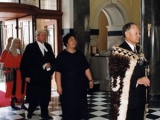
Today there are usually between 120 and 123 MPs in New Zealand's Parliament, which is a far cry from the 37 who met for the first time in Auckland in 1854.
- Page 2 - Women MPsFor much of its first century, Parliament was a bastion of male culture. Nowadays women make up 30% of
Women together
-
An introduction to the history of women’s organisations and the Women Together project
Biographies
-
 McCombs, Elizabeth Reid
McCombs, Elizabeth Reid
Forty years after women in New Zealand received the right to vote, Elizabeth McCombs became the first female Member of Parliament.
Read more... -
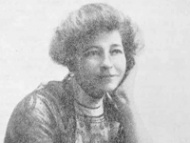 Wells, Ada
Wells, Ada
Ada Wells is remembered for her contribution to the women's suffrage campaign in the 1880s and 90s, and for becoming the first woman elected to the Christchurch City Council in 1917.
Read more... -
 Hall, John
Hall, John
John Hall was a force in our politics for several decades, serving as Premier and leading the parliamentary campaign for votes for women.
Read more... -
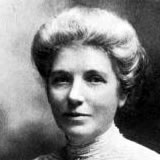 Sheppard, Katherine Wilson
Sheppard, Katherine Wilson
New Zealand was the first country in the world to grant women the vote. Kate Sheppard, leading light of the suffrage movement, was vindicated when 65% of New Zealand women took the chance to vote in their first general election.
Read more... -
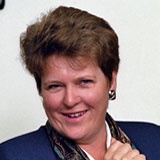 Shipley, Jennifer Mary
Shipley, Jennifer Mary
New Zealand’s first woman PM, Jenny Shipley came to power in 1997 after staging a carefully planned coup against Jim Bolger.
Read more... -
 Clark, Helen Elizabeth
Clark, Helen Elizabeth
Jenny Shipley may have been our first female PM, but Helen Clark was the first elected one. In 2008 she became our fifth longest-serving PM and Labour’s first to win three consecutive elections.
Read more... -
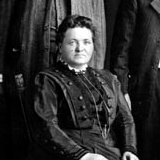 Morison, Harriet Russell
Morison, Harriet Russell
Dynamic and determined, Harriet Morison helped establish trade unions for female workers and was one of the leaders in the campaign to get votes for women.
Read more... -
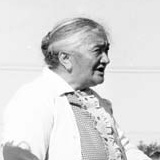 Rātana, Iriaka Matiu
Rātana, Iriaka Matiu
The first Māori woman to be elected to Parliament, Iriaka Matiu Rātana was a passionate advocate for the welfare of her people.
Read more... -
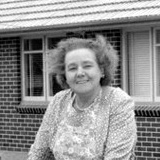 Howard, Mabel Bowden
Howard, Mabel Bowden
In 1947, 14 years after Elizabeth McCombs had become the first woman MP, and more than half a century after women had won the vote, Mabel Howard became New Zealand’s first woman Cabinet minister.
Read more... -
 Ardern, Jacinda Kate Laurell
Ardern, Jacinda Kate Laurell
New Zealand’s third female PM, and at 37 our youngest leader since Edward Stafford in 1856, Jacinda Ardern enjoyed perhaps the most meteoric rise to power of any New Zealand PM
Read more...
Related keywords
- suffrage campaign
- voting
- honours
- womens liberation
- women
- whanganui city
- women in politics
- business
- commonwealth games
- running
- sport
- sportswomen
- netball
- immigrants
- refugees
- cricket
- famous firsts
- hockey
- 1970s
- anne else
- elizabeth yates
- onehunga
- cycling
- christchurch
- health
- labour party
- protest
- olympics
- government
- prostitution
- racism
- rugby
- national council of women
- education
- music
- maori music
- art
- trade unions
- clothing
- nuclear free
- national party
- astronomy
- united states
- mt cook
- mountaineering
- publishing
- 1980s
- child welfare
- janet frame
- film
- iriaka ratana
- Maori MPs
- MPs
- meri mangakahia
- dunedin
- mary aubert
- religion
- family planning
- swimming
- violet walrond
- air transport
- maori womens welfare league
- maori
- anna stout
- ada wells
- anglican
- penny jamieson
- workers rights
- domestic staff
- liberal party
- kiri te kanawa
- henare tomoana
- justice system
- parliament
- harriet morison
- police
- kate sheppard
- historic places
- law
- ethel benjamin
- governor-general
- silvia cartwright
- children
- WCTU
- auckland city
- nurses
- palmerston north
- mabel howard
- kate edger
- influenza pandemic
- margaret cruickshank
- doctors
- maori leaders
- social policy
- air force
- aviation
- WW2
- elections
- prohibition
- richard seddon
- alcohol
- temperance
- six oclock swill
- WW1
- premiers
- john hall
- parihaka attack
- elizabeth mccombs
- lyttelton
- stamps
- prime ministers
- jacinda ardern
- jenny shipley
- te reo māori
- helen clark
- united nations
- national identity
- timeline
- whina cooper
- maori land
-
Main image: Florence Davis
Florence Davis is one of the many women who signed the 1892 women's suffrage petition, but not the better-known 1893 suffrage petition.



